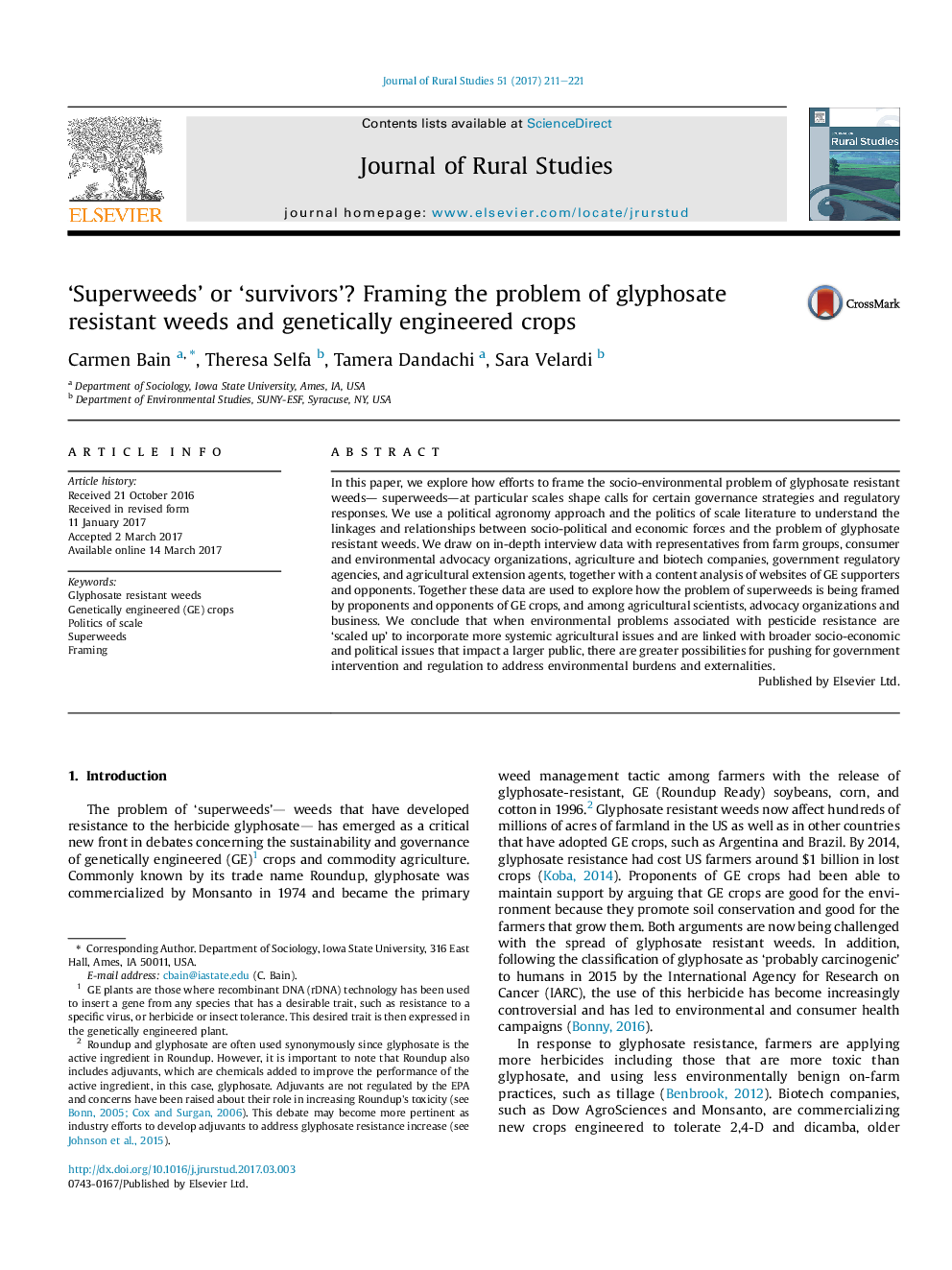| Article ID | Journal | Published Year | Pages | File Type |
|---|---|---|---|---|
| 6460145 | Journal of Rural Studies | 2017 | 11 Pages |
•Scale politics central to contestation over problem of glyphosate resistant weeds.•Neoliberal and scale frames used to assign responsibility for this problem.•Frames shape actor's calls for governance strategies and regulatory responses.•Proponents of GE crops scale down responsibility, focus on individual behavior.•Critics of GE crops scale up problem, focus on need for greater political oversight.
In this paper, we explore how efforts to frame the socio-environmental problem of glyphosate resistant weeds— superweeds—at particular scales shape calls for certain governance strategies and regulatory responses. We use a political agronomy approach and the politics of scale literature to understand the linkages and relationships between socio-political and economic forces and the problem of glyphosate resistant weeds. We draw on in-depth interview data with representatives from farm groups, consumer and environmental advocacy organizations, agriculture and biotech companies, government regulatory agencies, and agricultural extension agents, together with a content analysis of websites of GE supporters and opponents. Together these data are used to explore how the problem of superweeds is being framed by proponents and opponents of GE crops, and among agricultural scientists, advocacy organizations and business. We conclude that when environmental problems associated with pesticide resistance are ‘scaled up’ to incorporate more systemic agricultural issues and are linked with broader socio-economic and political issues that impact a larger public, there are greater possibilities for pushing for government intervention and regulation to address environmental burdens and externalities.
